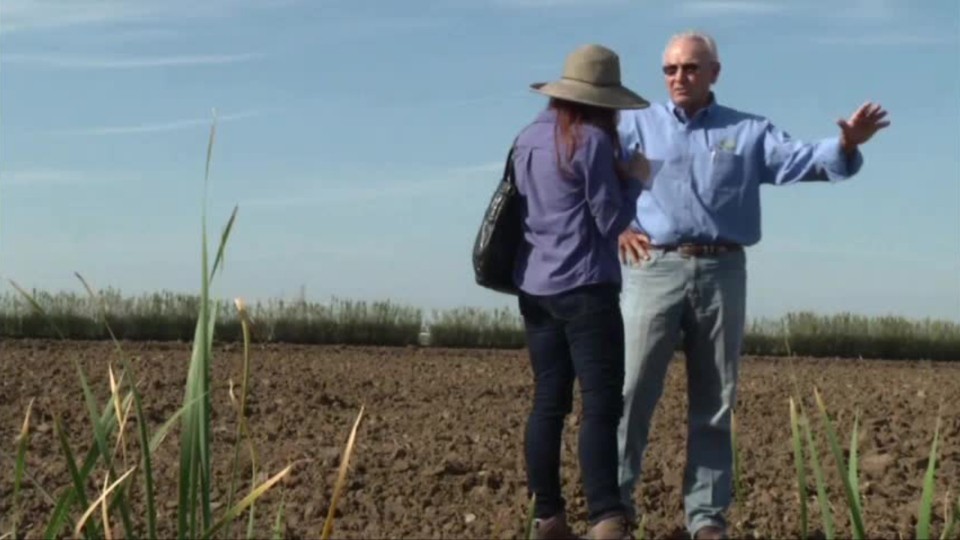Vineyard Manager
Vineyard Manager
Career Overview
Brian takes a tour of a vineyard with the manager who is responsible for all aspects of the cultivation of grapes, including preparing the ground, irrigation, care of the plants, and planning for the next year. It's a blend of art, science and business.
Education
Viticulture refers to the science of cultivating grapes for winemaking. Although the term viticulturist is not commonly used in the United States to describe any specific job within the wine industry, many workers within the wine industry start their careers by obtaining a bachelor's degree in viticulture and enology.
Future Outlook
BALANCE: Labour demand and labour supply are expected to be broadly in line for this occupation group over the 2019-2028 period at the national level.
Work Environment
Work takes place both indoors and outdoors, so workers may be exposed to various weather conditions. Workers use machinery, tools and heavy farm equipment, such as tractors, which can pose the risk of injury. Strong odours are common on a farm. Farmers may be exposed to chemicals, dust and sand in the workplace.
Recommended High School Courses
- Biology
- Business
- Writing
- Environmental science
- Economics
- Accounting
- Computer Applications
- Mathematics
- Active Listening - Giving full attention to what other people are saying, taking time to understand the points being made, asking questions as appropriate, and not interrupting at inappropriate times.
- Coordination - Adjusting actions in relation to others' actions.
- Critical Thinking - Using logic and reasoning to identify the strengths and weaknesses of alternative solutions, conclusions or approaches to problems.
- Monitoring - Monitoring/Assessing performance of yourself, other individuals, or organizations to make improvements or take corrective action.
- Operation and Control - Controlling operations of equipment or systems.
- Operation Monitoring - Watching gauges, dials, or other indicators to make sure a machine is working properly.
- Reading Comprehension - Understanding written sentences and paragraphs in work related documents.
- Speaking - Talking to others to convey information effectively.
- Writing - Communicating effectively in writing as appropriate for the needs of the audience.
- Food Production - Knowledge of techniques and equipment for planting, growing, and harvesting food products (both plant and animal) for consumption, including storage/handling techniques.
- Mathematics - Knowledge of arithmetic, algebra, geometry, calculus, statistics, and their applications.
- Mechanical - Knowledge of machines and tools, including their designs, uses, repair, and maintenance.
- Production and Processing - Knowledge of raw materials, production processes, quality control, costs, and other techniques for maximizing the effective manufacture and distribution of goods.
- Public Safety and Security - Knowledge of relevant equipment, policies, procedures, and strategies to promote effective local, state, or national security operations for the protection of people, data, property, and institutions.
- Arm-Hand Steadiness - The ability to keep your hand and arm steady while moving your arm or while holding your arm and hand in one position.
- Category Flexibility - The ability to generate or use different sets of rules for combining or grouping things in different ways.
- Control Precision - The ability to quickly and repeatedly adjust the controls of a machine or a vehicle to exact positions.
- Deductive Reasoning - The ability to apply general rules to specific problems to produce answers that make sense.
- Finger Dexterity - The ability to make precisely coordinated movements of the fingers of one or both hands to grasp, manipulate, or assemble very small objects.
- Information Ordering - The ability to arrange things or actions in a certain order or pattern according to a specific rule or set of rules (e.g., patterns of numbers, letters, words, pictures, mathematical operations).
- Manual Dexterity - The ability to quickly move your hand, your hand together with your arm, or your two hands to grasp, manipulate, or assemble objects.
- Near Vision - The ability to see details at close range (within a few feet of the observer).
- Oral Comprehension - The ability to listen to and understand information and ideas presented through spoken words and sentences.
- Oral Expression - The ability to communicate information and ideas in speaking so others will understand.
- Perceptual Speed - The ability to quickly and accurately compare similarities and differences among sets of letters, numbers, objects, pictures, or patterns. The things to be compared may be presented at the same time or one after the other. This ability also includes comparing a presented object with a remembered object.
- Problem Sensitivity - The ability to tell when something is wrong or is likely to go wrong. It does not involve solving the problem, only recognizing there is a problem.
- Selective Attention - The ability to concentrate on a task over a period of time without being distracted.
- Speech Clarity - The ability to speak clearly so others can understand you.
- Speech Recognition - The ability to identify and understand the speech of another person.
- Written Comprehension - The ability to read and understand information and ideas presented in writing.
- Record operational or production data.
- Operate cooking, baking, or other food preparation equipment.
- Operate mixing equipment.
- Clean work areas.
- Sterilize food cooking or processing equipment.
- Evaluate quality of food ingredients or prepared foods.
- Measure ingredients or substances to be used in production processes.
- Select production input materials.
- Load materials into production equipment.
- Operate pumping systems or equipment.
- Determine food production methods.
- Inspect food products.
- Adjust temperature controls of ovens or other heating equipment.
- Monitor instruments to ensure proper production conditions.
- Inspect production equipment.
- Notify others of equipment repair or maintenance needs.
- Watch operating equipment to detect malfunctions.
- Direct operational or production activities.
- Package products for storage or shipment.
- Shape clay or dough to create products.
- Move products, materials, or equipment between work areas.
Approx Salary Expectation
Related Careers
References
PayScale, Inc., https://www.payscale.com/.
WorkBC's Career Trek, http://www.careertrekbc.ca/.
Work - Chron.com, https://work.chron.com/.
O*NET OnLine, National Center for O*NET Development, https://www.onetonline.org/.


